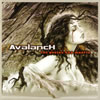Avalanch - Los Poetas Han Muerto review
| Band: | Avalanch |
| Album: | Los Poetas Han Muerto |
| Style: | Progressive power metal |
| Release date: | 2003 |
01. Lucero
02. Cien Veces
03. Niño
04. Jamás
05. Alborada
06. El Viejo Torreón
07. Del Cielo A La Tierra [feat. Andre Matos]
08. Los Poetas Han Muerto
09. Madre Tierra
10. Ecos De vida
2003 was crucial for Alberto Rionda: Avalanch, the band he plays and composes for (and is also the producer), experienced many changes, and this was the first album introducing Ramón Lage as the voice of the band, instead of Víctor García, and Marco Álvarez instead of Alberto Ardines (both founded the band WarCry). Those changes occured after the acclaim album El Angél Caído (The Fallen Angel) was released in 2001, awaiting a follower to confirm Avalanch as one of the most influential Spanish band ever.
Back with a new line-up, a new logo, Avalanch was ready to present their new effort called Los Poetas Han Muerto (Poets Have Died).
The great cover by Luis Royo is just the reflection of the music: great songs filled with creativity, emotions, power, in a very well structured way: a high class album ranging somewhere between hard rock, heavy, progressive and maybe a bit of power metal. Great lyrics, intelligent and worth a bunch of poems, supported by great vocals, featuring Andre Matos (Shaman) in the song Del cielo a la tierra (literally From the sky to the ground, or Heaven and Earth) that transmit a kind of force to the songs, making them all catchy and meaningful.
The music in itself is not outstanding, I mean, it's not just some musicians showing up, no this album is not about that. It's loud when it needs to be loud, soft when it needs to be soft, and so are the solos, not present just to illustrate a sudden outburst in one's hands but to give depth, to add melody to the songs. All the songs are composed in a very clever way, and produced the same way.
The only problem I can find is in the length of some songs. They aren't very long, something like 6 minutes on average, but maybe some songs would have been more effective if shortened by 20 to 40 seconds.
I know some of you may say: "Oh yeah, it sounds really worth my money, but? they sing in Spanish, and I know nothing of Spanish!" To that I say: "It's time to learn!" But I could also say that by the time I'm writing this review, they're about to release an English version, called "Mother Earth", featuring a cover of U2's Where The Streets Have No Name.
I haven't heard this English version, but knowing Alberto Rionda is a kind of genius when it comes to his band I bet you can all rush to your music store and look for it, or order it, or at least check the few mp3s available at their website.
All in all you just have to discover the amazing work of Avalanch!
I'd like to end this review with the introduction Alberto wrote for the song by song of this album, available on their website:
"Siempre he creído que el principio y el fin de una letra es la intención de transmitir un sentimiento, una creencia, una experiencia, una idea... Algo muy simple puede ser muy complicado de expresar, y algo complejo puede llegar a transmitirse con una sola palabra. No es una ciencia exacta, pero creo que si la intención del autor queda claramente reflejada en ella, y alguien es capaz de captarla y de interpretarla, entonces podemos afirmar que se ha producido un pequeño milagro en ese complejo ecosistema corazón/mente/alma?"
I've always thought that the beginning and the end of a lyric is the will to transmit a feeling, a belief, an experience, an idea... Something very simple can be very difficult to express, and something complex may be transmitted by one single word only. It's not an exact science, but I think that if the author's will is clearly reflected in it, and if someone is able to capture and interpret it, then we can say that a small miracle has happened in this complex ecosystem heart/mind/soul?
Alberto Rionda
Hits total: 2372 | This month: 2



